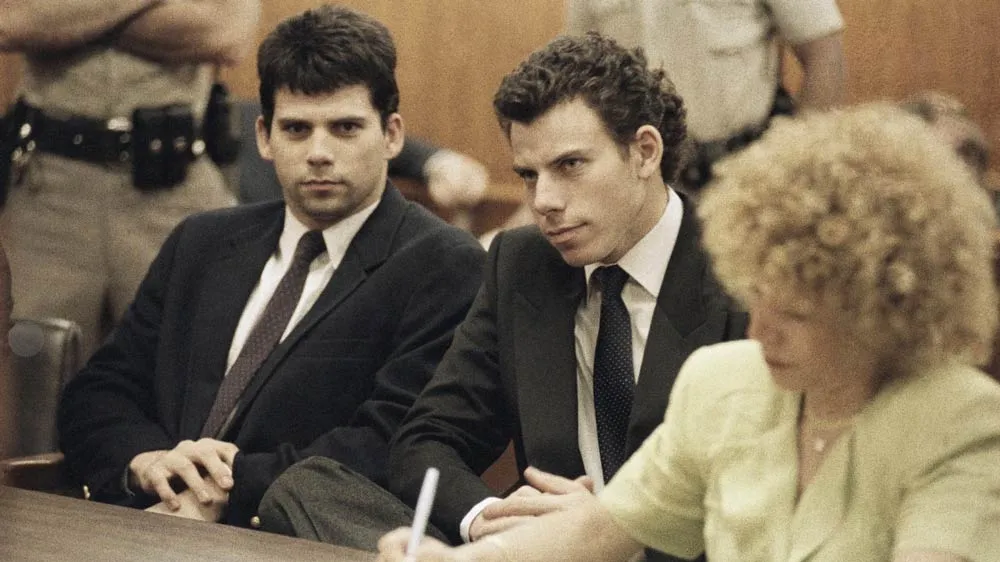November 10, 2011
J. Edgar: NOT A Gay American?
Kilian Melloy READ TIME: 3 MIN.
The new Clint Eastwood film "J. Edgar" tackles the subject of a closeted gay man so terrified of the consequences of his sexuality that he seeks, and obtains, power in a bid to protect himself. But a blogger insists that reports of FBI icon J. Edgar Hoover's homosexuality have been invented as a KGB plot to destabilize America.
The widespread perception of Hoover is that he was gay, and a colleague at the FBI. Clyde Tolson, was his lover. However, according to a Wikipedia article, no firm evidence exists for this supposition, even though (as the new film points out) Tolson inherited and lived in Hoover's home after his death. The two men were known to spend time together on vacations, but while some took this as evidence that the men were lovers, others held to the view that they were simply extremely close friends.
A Nov. 9 posting at blog American Thinker, however, says that the rumors regarding Hoover's sexuality--which have been in circulation since the 1940s--are not based on fact, but rather arose as part of a plot by the KGB to demoralize Americans. The blog says that Hoover's supposed homosexuality was a KGB invention originating in the 1960s, without explaining the two decades' worth of rumors prior to that point.
"[O]ne of the KGB's key functions was to run disinformation programs to undermine leaders and institutions in the West, especially the United States--what the spy agency called the 'main adversary," the blog asserts.
"[T]he scheme to characterize Hoover as a homosexual was so successful it has remained in the American memory, becoming an accepted fact expressed in books, films, on campus and on television as a confirmed fact," the blog goes on to say. "That the new film 'J. Edgar' continues this charade is hardly surprising, but it says more about our culture and its response to disinformation than it does to the proof that Hoover was gay."
The blog goes on to theorize, "People believe Hoover was gay because the thrall of utopian manifestos took precedence over common sense in our media."
The American Thinker posting purports to connect the alleged KGB plot to assassinate Hoover's character to a host of other "Leftist" schemes and conspiracy theories, among them popular ideas that the United States government was responsible for the terrorist attacks of 9/11.
If the "Left" has colluded in perpetuating a myth about Hoover's sexuality, then Anthony Summer's 1993 biography "Official and Confidential: The Secret Life of J Edgar Hoover" would arguably be part of the plot. In the book, Summers recounts how a society couple, Lewis Solon Rosenstiel and Susan Rosenstiel, encountered both Hoover and the notoriously closeted Roy Cohn at a gay sex party in 1958, the Wikipedia article reported.
By the same token, however, the Wikipedia article also noted that the so-called "Mitrokhin Archive," a trove of documentation created by Vasili Mitrokhin, a long-time official with the KGB, suggested that the KGB really did have a campaign in place to spread the story that Hoover was gay. What is less clear is whether the claim was an invention by the KGB, or whether the campaign to publicize the story was an opportunistic one, which leaves open the possibility that Hoover was indeed gay.
The Wikipedia article took note of Rosenstiel's lack of credibility and the apparent dichotomy between Hoover's staid character and the idea of him participating in a sex party.
Openly gay screenwriter Dustin Lance Black (who also penned the script for "Milk") told GLBT news site AfterElton that he was hesitant to "make up" anything about Hoover "out of whole cloth," and added that major elements of his screenplay were based on verifiable sources, including a lovers' quarrel between the characters of Tolson and Hoover that serves as a critical juncture in the film.
Black told AfterElton that the two men "really did share this hotel room and this fight was overheard by people in adjoining rooms and, in fact, Clyde couldn't come to work for a week because of a black eye. You know, things that work associates don't normally do."
Another element was Hoover's response to women.
"[T]he way these actresses would flirt with Hoover is all documented in their own autobiographies," Black noted. "These stories have been told and retold of how disinterested he was in some of the most beautiful women of his time."
Black also pointed out that people thought of sexuality in different terms in Hoover's day.
"There was no word 'gay,' " the screenwriter said. "Gay didn't mean what it means today. Gay meant you were having a good time."
Kilian Melloy serves as EDGE Media Network's Associate Arts Editor and Staff Contributor. His professional memberships include the National Lesbian & Gay Journalists Association, the Boston Online Film Critics Association, The Gay and Lesbian Entertainment Critics Association, and the Boston Theater Critics Association's Elliot Norton Awards Committee.


